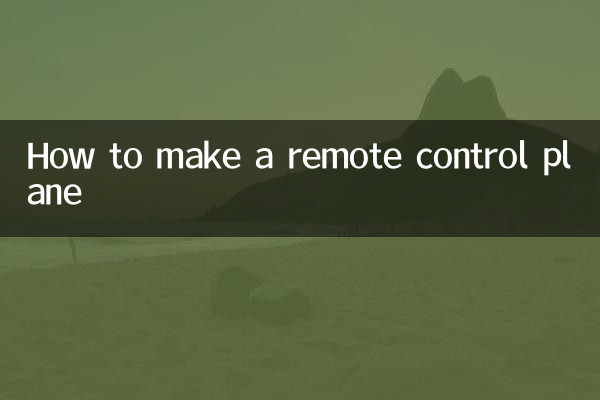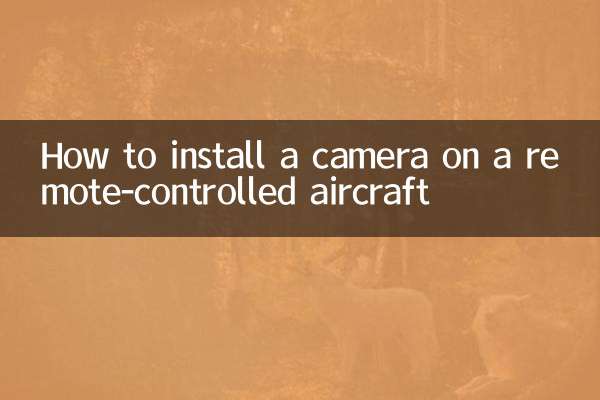Title: How to make a remote control plane
With the rapid development of technology today, homemade remote-controlled aircraft has become a hot topic for many DIY enthusiasts and technology fans. This article will introduce you in detail how to build a remote-controlled aircraft from scratch, including required materials, step analysis and precautions. At the same time, we will also provide you with the latest technical references and inspiration based on popular topics across the network for the past 10 days.
1. Materials required for self-made remote control aircraft

| Material name | quantity | use |
|---|---|---|
| Lightweight wood or foam board | 1-2 photos | Making aircraft fuselage and wings |
| Motor | 1 | Provide power |
| propeller | 1 pair | Combined with the motor to generate thrust |
| Electronic speed regulator (ESC) | 1 | Control motor speed |
| Remote control and receiver | 1 set | Remote control of the aircraft |
| Battery | 1 piece | Powering motors and electronic equipment |
| Servo motor | 2-3 | Control rudder surface (such as ailerons, elevators) |
| Connecting wires and welding tools | Several | Connect to electronic devices |
2. Analysis of the steps of self-made remote control aircraft
1.Design aircraft models: First, you need to design the fuselage and wings of the aircraft. Design drawings can be drawn using CAD software or by hand. Ensure that the center of gravity and aerodynamic design of the aircraft is reasonable.
2.Making the fuselage and wings: Cut the fuselage and wings with light wood or foam board according to the design drawings. Pay attention to maintaining wing symmetry and smoothness.
3.Install the motor and propeller: Fix the motor to the front of the fuselage and install the propeller. Make sure the propeller rotates correctly.
4.Connect to electronic devices: Connect the electronic speed controller (ESC) to the motor and connect it to the battery. Then, connect the remote receiver to the servo motor and fix it to the body.
5.Debugging and testing: Perform ground testing in an open field to ensure that all electronic equipment is working properly. Then conduct a short-distance test flight and gradually adjust the rudder surface and center of gravity.
3. References to popular topics across the network in the past 10 days
| Hot Topics | Related Technology | Popularity index |
|---|---|---|
| 3D printing remote control aircraft | 3D printing technology | ★★★★☆ |
| AI-assisted flight control | AI | ★★★★★ |
| Environmentally friendly materials for making aircraft | Sustainable Materials | ★★★☆☆ |
| FPV first perspective flight | FPV technology | ★★★★☆ |
4. Things to note
1.Safety first: Be sure to pay attention to safety during production and flight. Avoid flying near crowded or high-voltage lines.
2.Battery Management: Use a suitable battery and avoid overcharging or overflow. Lithium batteries are prone to fire at high temperatures, so you need to be extra careful.
3.Laws and regulations: Different regions have different regulations on the flight of remote-controlled aircraft. Please make sure to comply with local laws and regulations.
4.Gradually advance: Beginners recommend starting with simple models and gradually trying more complex designs.
V. Conclusion
Not only is homemade remote-controlled aircraft a fun DIY activity, it will also help you gain insight into the principles of flight and electronics. Combining the popular technologies such as 3D printing, AI-assisted flight, etc., you can create a more personalized and high-performance remote-controlled aircraft. Hope this article provides you with practical guidance and inspiration!

check the details

check the details